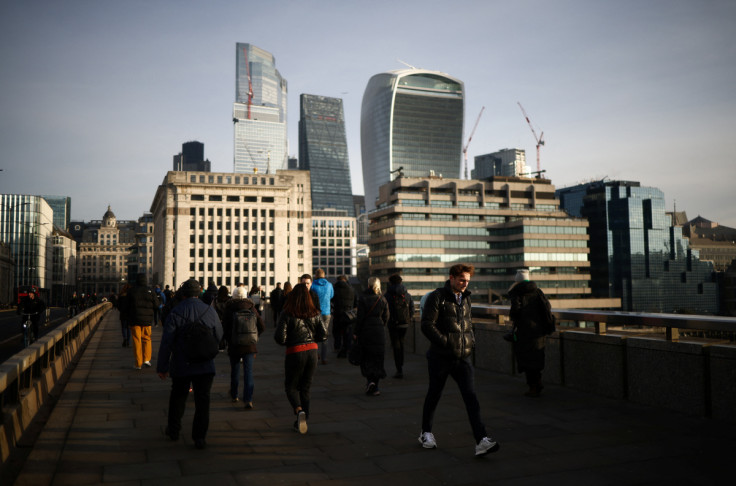Central Banks Risk Tipping UK and Other Developed Countries Into Recession
The report highlights the risk of a vicious cycle, where low interest rates fail to stimulate meaningful economic growth and cause a recession.

In a stark warning that reverberates through the financial corridors, a recent economic analysis has indicated that central banks, including the Bank of England, could be steering developed countries, including the UK, toward the perilous edge of recession.
The report, conducted by the Organisation for Economic Co-operation and Development (OECD), scrutinises the strategies employed by central banks and their potential ramifications on the broader economic landscape.
The organisation also warned of the considerable likelihood of policymakers making erroneous decisions, emphasising the potential jeopardy to its envisioned central scenario of a "soft landing" for the global economy.
According to its semi-annual economic outlook, the OECD projected that the UK's growth would persist as "steady but modest," anticipating a 0.5 per cent increase in national output in 2023 and a 0.7 per cent rise in 2024.
This contrasts with its forecast six months earlier, which foresaw a 0.3 per cent expansion for the current year and a one per cent growth for the following year.
The analysis suggests that the unconventional policies adopted by these financial institutions, such as low-interest rates and large-scale asset purchases, might inadvertently be exacerbating the risks of a recession.
The Bank of England, in particular, has been navigating uncharted waters since the financial crisis of 2008.
While low interest rates have been a cornerstone of its strategy to spur economic growth, concerns are mounting that such policies might have diminishing returns and unintended consequences.
Critics argue that a prolonged period of ultra-low interest rates could encourage excessive risk-taking in financial markets and lead to the misallocation of resources.
The report highlights the risk of a vicious cycle, where low interest rates fail to stimulate meaningful economic growth but contribute to asset bubbles and financial imbalances.
When these bubbles burst, the fallout can be severe, with the potential to tip economies into recession. The analysis draws parallels with historical recessions and underscores the importance of a nuanced and dynamic approach by central banks.
As the UK grapples with the economic fallout of Brexit and the ongoing pandemic-related challenges, the role of the Bank of England becomes even more crucial.
The report calls for a reevaluation of the current monetary policy framework and suggests that central banks should explore alternative strategies to address the complexities of the present economic landscape.
The OECD also shared their growing concern that the Israel-Hamas war can become a wider regional conflict. "Heightened geopolitical tensions due to the conflict following the terrorist attacks on Israel by Hamas are a key near-term concern, particularly if the conflict were to broaden," said the organisation's chief economist.
"This could result in significant disruptions to energy markets and major trade routes, and additional risk repricing in financial markets, that would slow growth and add to inflation."
Lombardelli added: "Inflation is easing but growth is slowing. The tightening of monetary policy needed to tackle inflation is taking effect. Despite stronger-than-expected GDP growth in 2023, tightening financial conditions, weak trade and subdued confidence are taking a toll. Housing markets and bank-dependent economies, particularly in Europe, are feeling the impact.
"In summary, the global economy is grappling with inflation, slowing growth, and mounting fiscal pressures. Policymakers must prioritise macroeconomic stability, structural reforms, smart fiscal policies and international cooperation to foster sustainable and inclusive growth."
The concerns raised by the economic analysis have prompted discussions among policymakers, economists, and financial experts.
The delicate balance between stimulating economic recovery and avoiding the pitfalls of financial instability is at the forefront of these deliberations.
As central banks re-calibrate their strategies, the global economic landscape stands at a critical juncture, with the UK and other developed countries anxiously watching for signs of a potential recession that could reshape the course of their economic futures.
© Copyright IBTimes 2025. All rights reserved.






















